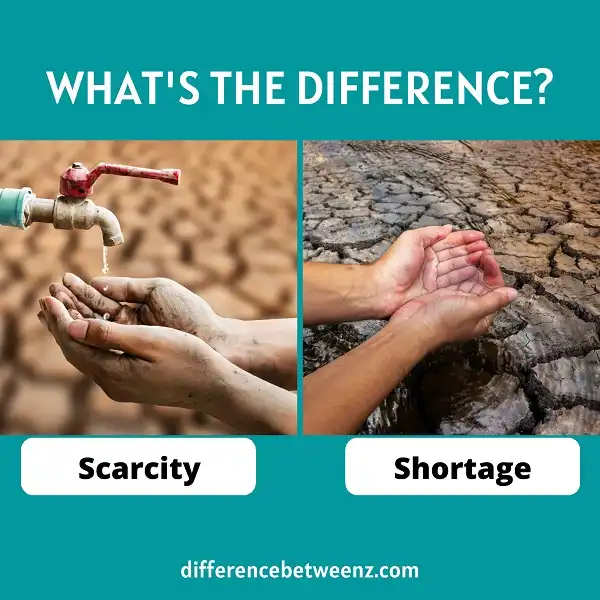In economics, there is a distinction between scarcity and shortage. Scarcity is when there isn’t enough of something to meet the needs of everyone. Shortage is when something is not available in the market even though there may be enough to meet the needs of everyone. It’s important to understand the difference between these two concepts because they have different implications for economic policy. In particular, shortages are generally caused by government policies that interfere with the normal workings of the market, while scarcities can occur naturally due to factors such as environmental degradation.
What is Scarcity?
Scarcity is the basic economic problem of having too little resources to produce everything we want. It is the condition in which our wants are greater than the resources available to satisfy them. Scarcity exists because human wants and needs are unlimited, but the resources available to meet them are limited. This is an economic problem because it requires us to make choices about how to use our scarce resources. Scarcity forces us to choose between competing options. We cannot have everything we want, so we must choose wisely. The need to make these choices creates opportunity cost, which is the cost of the next best alternative that we give up when we make a choice. Scarcity is a necessary evil because it is what gives rise to opportunity cost and all economic activity. Without scarcity, there would be no need for economics or economists!
What is Shortage?
Shortage refers to a situation where the demand for a good or service exceeds the supply. This can lead to higher prices and, in extreme cases, rationing. Shortages can be caused by a variety of factors, including wars, embargoes, natural disasters, and financial crises. They can also occur when a country’s production capacity is insufficient to meet the demands of its citizens. Shortages can have serious consequences, leading to inflation, civil unrest, and even famine. As such, they are often carefully monitored by governments and international organizations.
Difference between Scarcity and Shortage
Scarcity and shortage are two terms that are often used interchangeably, but there is a subtle difference between the two. Scarcity refers to a lack of resources, whether it’s a shortage of food or water, a limited supply of shelter, or a limited number of jobs. In other words, scarcity occurs when there isn’t enough of something to go around. Shortage, on the other hand, typically refers to a temporary lack of a particular good or service. For example, there might be a shortage of medical supplies during a disease outbreak, or a shortage of housing after a natural disaster. While both scarcity and shortage can lead to problems like increased prices and conflict, scarcity is a more permanent condition.
Conclusion
The difference between scarcity and shortage is an important distinction to make when it comes to understanding the principles of economics. When you understand these concepts, you can apply them in your own life to better manage your resources and make more informed financial decisions.


